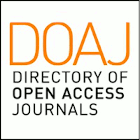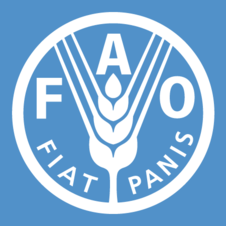PRÁCTICAS ÉTICAS EN LA COMERCIALIZACIÓN Y CONSUMO DE ALIMENTOS SALUDABLES EN EL SIGLO XXI
Resumen
La finalidad de consumir alimentos podría ser simplemente mantener la vida, una vida saludable en lo individual y social, lo que sería suficiente para desarrollar plenamente capacidades intelectuales y artísticas en el ser humano. Los cambios en los patrones de consumo de alimentos y el sedentarismo han incrementado las prevalencias de obesidad y enfermedades crónicas no transmisibles. La industria de alimentos ha sido señalada como promotora de estos estilos de vida poco saludables, debido a que la mayoría de sus productos son de alta densidad energética y su introducción a la cultura alimentaria se hace frecuentemente con campañas publicitarias engañosas, afectando principalmente al público infantil. De ahí la necesidad de instrumentar leyes en apoyo a la salud pública para crear condiciones que permitan a las personas igualdad de condiciones para aspirar a una vida más saludable, donde el gobierno tenga el poder y deber de regular al sector privado con el objeto de proteger la salud de su población. Existen experiencias en varios países, donde se ha limitado la adición y/o se ha impuesto un distintivo a los alimentos con alto, mediano y bajo contenido de sodio, azucares, grasas saturadas y grasas trans, lo que ha sido más efectivo para orientar al consumidor, incluso se ha prohibido la publicidad de productos infantiles en medios masivos de comunicación. En Finlandia las restricciones impuestas a la industria alimentaria y los estímulos directos a los alimentos saludables aplicados durante 30 años han disminuido el 85% de la mortalidad por enfermedades cardiovasculares. Sólo el ejercicio pleno del derecho de la sociedad a estar informados, recibir educación y formación en materia de consumo, puede contribuir a la adquisición de hábitos de consumo y estilos de vida saludable en el siglo XXI.
Abstract
The purpose of food consumption could simply be to sustain life, to maintain a healthy lifestyle individually and socially, which would be enough to fully develop intellectual and artistic capabilities in a human being. The changes in the patterns of food consumption and sedentarity have incremented the prevalence of obesity and non transmissible chronic diseases. The food industry has been accused as being the promoter of unhealthy lifestyles, due to the fact that the vast majority of their products are of high energetic density and it´s introduction to the food culture is done frequently through tricky publicity campaigns affecting mainly the infant public. So from here arises the necessity to implement laws in support of public health in order to create conditions that allow people to have equal conditions to aspire for a healthier lifestyle, where the government has the power and duty to regulate the private sector with the object of protecting the health of it´s population. There are various experiences in many countries where the addition of sodium, sugars, trans and saturated fats have been limited as well as being marked with low, medium and high content, which has been more effective in orientating the consumer, and even the publicity of children´s products has been banned from the mass media. In Finland the restrictions imposed to the food industry and the direct stimulation towards healthy foods applied throughout 30 years have decreased 85 percent of the mortality rate due to cardiovascular diseases. Only the full exercise of the right of the people to be informed, receive education and formation in terms of food consumption can contribute to the acquisition of healthy eating habits and lifestyles in the twenty first century.
Palabras clave: Ética, consumo de alimentos, alimentos saludables
Descargas
Citas
Organización de las Naciones Unidas para la Agricultura y la Alimentación, 1996. Declaración mundial sobre la seguridad alimentaria en el mundo y plan de acción de la cumbre mundial sobre alimentación.http://www.cinu.org.mx/temas/desarrollo/dessocial/alimentos/dec_plan_aliment1996.htm#plandea ccion
Cortina, A. 2002. Por una ética del consumo. Editorial Taurus 356 pp.
Organización de las Naciones Unidas para la Agricultura y la Alimentación, Op. cit.
Yach, D. 2008 Food companies and nutrition for better health. Public Health Nutr; 11:109-11.
Drewnowsky A, and BM. Popkin 1997. The nutrition transition: new trends in the global diet. Nutr Rev ;55:3143.
Drewnosky, A. 2000 Nutrition transition and global dietary trends. Nutrition 16:486-487.
Popkin, BM and P.Gordon-Larsen 2004 T he nutrition transition: worldwide obesity dynamics and determinants. Int J Obes Relat Metab Disord;28:S2-S9.
World Health Organization. Global strategy on diet, physical activity and health. Ginebra: WHO; 2004.
Popkin, BM. 2006. Global nutrition dynamics: the World is shifting rapidly toward a diet linked with noncomunicable diseases. Am J Clin Nutr;84:289-98.
Idem:
Grocery Manufacturers Association. 2006. Economic impact of the selective taxation of snack foods. EUA: GMA;. En http://www.gmabrands.com/publications/docs/GMASnackTaxAugust2006.pdf
Grocery Manufacturers Association. Industri Position about obesity. En http://www.gmabrands.com/publicpolicy/obesity_ip.cfm
Santibáñez J. 2002. Televisión y consumo de golosinas. Comunicar;18:179-8.
Mello MM, DM Studdert and TA Brennan. 2006 Obesity—the new frontier of public health law. N Engl J Med;354-2601-2610.
El Poder del Consumidor. El impacto de la publicidad televisiva sobre la salud de los niños. http://www.elpoderdelconsumidor.org/foro_el_impacto_de_la_publicidad_sobre_nios.html
Marín-León, L, AM Segal-Correa, G Panigassi, LK Maranha, M Sampaio and R. Pérez-Escamilla 2005 Food Insecurity perception in familias with elderly in Campinas, Sao Paulo, Brazil. Cad Saude Publica;1433-40.
Mello, MM, et. al., Op. cit.
Linn, SE. 2004 Food marketing to children in the context of a marketing maelstrom. J Public Health Policy;25:367-78.
Grupo de trabajo de la OPS/OMS 2007. Las Américas libres de grasas trans, conclusiones y recomendaciones, Washington, D.C. Abril 2007. http://www.inta.cl/noticias/Final%20Conclusiones%20Grupo%20de%20Trabajo%20Grasas%20Trans.pdf
Stender S, J Dyerberg and A Astrup 2006. High levels of industrially prodiced trans fat in popular fase foods. N Engl Med;354:1650-2.
Pietinen P, M Lahti-Koski, E Vartiainen and P Puska. 2001. Nutrition and cardiovascular disease in finland since the easuccess story. J Nutr Health Aging;5:150-154.
Ministerio de Salud del Gobierno de Chile. Cumbre de Nutrición y Salud 2008. http://www.egochile.cl/paginas/cumbre_nutricion_y_salud.htm
Wall Street Journal, 24 Enero, 2001.
Mepham, TB 2000. The role of food ethics in food policy. Proc Nutr Soc;59:609-18.
Comisión de codex alimentarius FAO/OMS. 1985. Código de ética para el comercio internacional de alimentos. Roma: FAO/OMS, 1985.
Cortina A. Op. cit.
Higgins, K. 2003. The World's Top 100 Food & Beverage Companies. Food Engineering Magazine, noviembre 2003.
Rudiño, L. 2007 Los consumidores vs. Publicidad de Kellogg’s y Nestlé. Suplemento La Jornada del campo, La Jornada México, octubre 2007.
De la Cuesta M, y C.Valor 2003. Responsabilidad social de la empresa. Boletín económico de ICE;2755:719.
Wardle, J, and S Carnell. 2006. Parental feeding practices and children´s weight. Acta Paediatrica;96:5-11
Descargas
Publicado
Cómo citar
Número
Sección
Licencia
Los derechos del trabajo pertenecen al autor o autores, sin embargo, al enviarlo a publicación en la Revista Salud Pública y Nutrición de la Facultad de Salud Pública y Nutrición de la Universidad Autónoma de Nuevo León, le otorgan el derecho para su primera publicación en medio electrónico, y posiblemente, en medio impreso a la Revista Salud Pública y Nutrición. La licencia que se utiliza es la de atribución de Creative Commons , que permite a terceros utilizar lo publicado siempre que se mencione la autoría del trabajo y a la primera publicación que es en la Revista Salud Pública y Nutrición. Asimismo, el o los autores tendrán en cuenta que no estará permitido enviar la publicación a ninguna otra revista, sin importar el formato. Los autores estarán en posibilidad de realizar otros acuerdos contractuales independientes y adicionales para la distribución no exclusiva de la versión del artículo publicado en la Revista Salud Pública y Nutrición (p. ej., repositorio institucional o publicación en un libro) siempre que indiquen claramente que el trabajo se publicó por primera vez en la Revista Salud Pública, Revista de la Facultad de Salud Pública y Nutrición de la Universidad Autónoma de Nuevo León.










